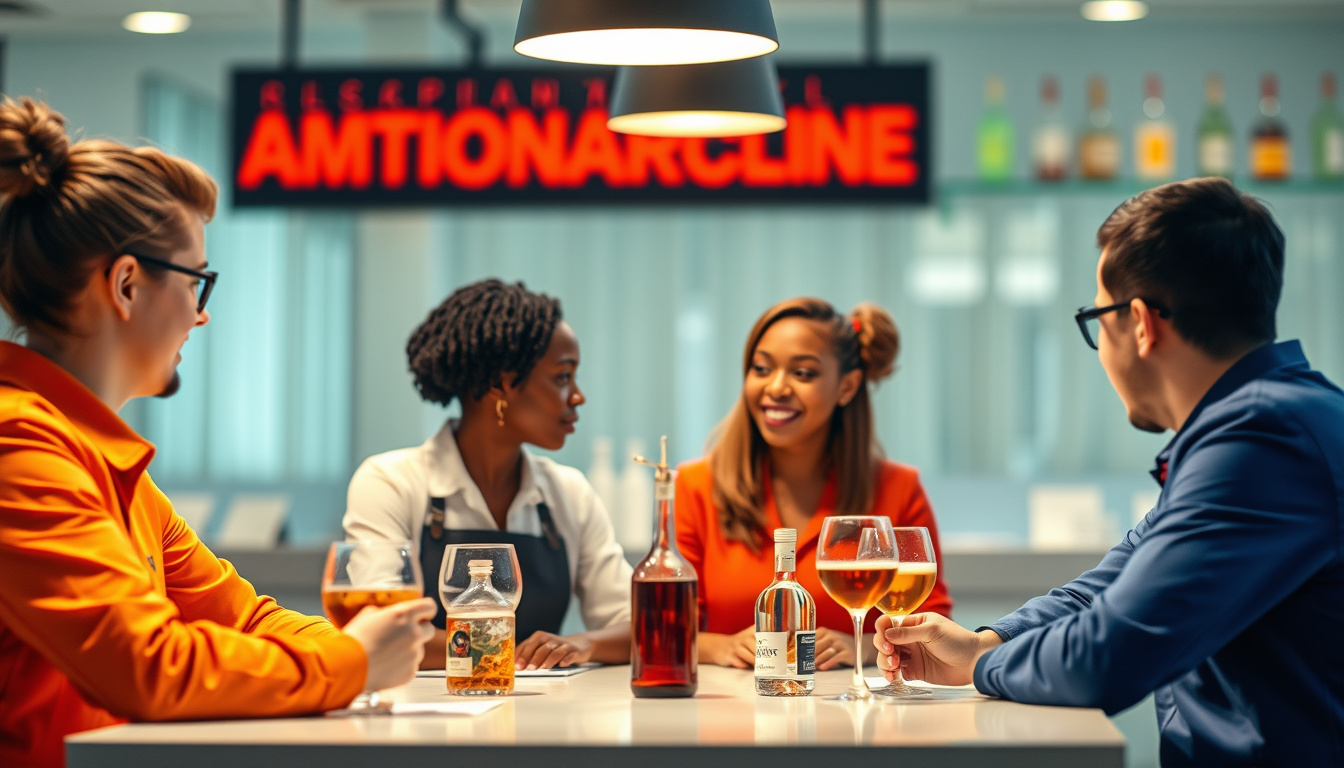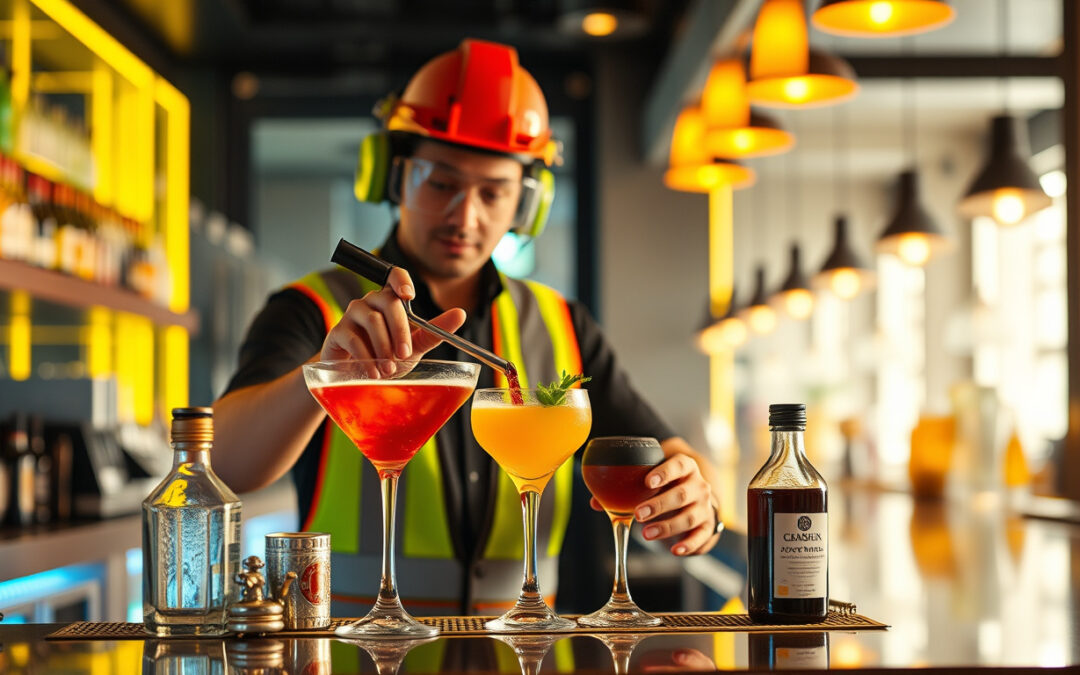In the hospitality field, responsible beverage training is key. It keeps alcohol service safe and legal. Staff learn skills and gain knowledge. They serve alcohol with care. They protect guests and lower legal risks. If you run a bar, restaurant, or event space, you gain much from these programs. They boost safety, ease customer service, and help follow the law.
In this article, we show simple steps. We cover the main practices of safe alcohol service. We explain how it helps your business. We give clear tips for using these ideas. You build a safer space and prove you care for responsible service.
────────────────────────────
What Is Responsible Beverage Training?
Responsible beverage training teaches staff who serve alcohol. It helps bartenders, servers, and managers learn their duties. They see signs of intoxication. They learn to stop service when needed. They get clear tips on handling hard cases and avoiding harm. Training gives them tools to protect health and reduce risks.
This training shows how to:
• Recognize signs of intoxication
• Know local liquor rules
• Use polite refusal skills
• Stop sales to minors
• Prevent drunk driving
When employees learn these skills, they help keep the public safe. They also cut legal risks for your business.
────────────────────────────
Why Responsible Beverage Training Is Important
Training makes legal sense. It is not just a rule to follow. It is a needed step for safe alcohol service. Here are main reasons to use this training:
-
Legal Compliance and Liability Protection
Local and state laws control alcohol service. Breaking these rules, like serving minors or very drunk guests, can bring high fines or closures. Training makes sure staff know and follow these rules. -
Enhancing Customer Safety
Skilled staff can spot when someone drinks too much. They act to stop accidents or fights. A safe service helps both guests and staff. -
Improving Employee Confidence and Professionalism
Well-trained employees feel sure in tough moments. They act with care and ease. This skill helps them avoid hard clashes and work better. -
Promoting a Positive Brand Image
A business that shows care earns trust. Guests and locals feel safe. This trust builds customer ties and long-term success.
────────────────────────────
Essential Practices in Responsible Beverage Training
Good training must cover these points:
Recognizing Signs of Intoxication
Trainees learn to see clear signs. They watch for slurred speech, weak steps, or angry behavior. This helps them know when to stop serving.
Understanding and Verifying Age Restrictions
They learn to check IDs carefully. They spot fake papers. This keeps kids away from alcohol.
Implementing Refusal Skills
Refusing to serve can be hard. Role-play helps staff learn crisp, kind ways to say no. They practice calm words and ways to ease tension.
Managing Difficult Situations
Handling a drunk guest calls for care. Training shows how to stay calm. It explains when to call a manager or the police.
Promoting Responsible Consumption
Staff learn to encourage a light pace. They suggest food or non-drinks. They share info on drink strength to guide choices.

Legal Knowledge and Documentation
Staff learn local alcohol rules. They see the need for accurate records. Keeping logs helps the business if trouble comes.
────────────────────────────
Steps to Implement Responsible Beverage Training in Your Business
Want to start training? Try these steps:
-
Assess Your Business Needs
Look at your venue size and client type. Check your local law requirements. -
Select a Training Program
Pick a certified training provider. Choose courses that match your local rules. -
Schedule Regular Training Sessions
Plan initial courses and regular refreshers. All serving staff should join. -
Use Interactive Training Methods
Bring in role-play, quizzes, and realistic scenarios. These tools help ideas stick. -
Establish Clear Policies and Procedures
Write down safe alcohol service steps. Share these rules with your team. -
Monitor and Enforce Compliance
Supervisors watch service practices. They step in when needed and remind staff of the rules. -
Keep Records
Save training results and incident logs. Records help in audits and legal cases.
────────────────────────────
Benefits Beyond Compliance: How Responsible Beverage Training Positively Impacts Business
Training has gains beyond rule-following:
• Reduced Incidents and Increased Safety
Safer service cuts down fights, crashes, and drunk driving. A safer environment wins.
• Lower Insurance Costs
Some insurers lower rates for businesses with proper training.
• Employee Satisfaction
Staff who know how to act feel proud. They work with more joy and less stress. This cuts turnover.
• Customer Loyalty
Guests see that you care for their safety. This helps build stronger bonds.
• Community Support
A business seen as safe gains local help and trust.
────────────────────────────
Checklist for Effective Responsible Beverage Training
Make sure your program does all this:
[ ] Explains key alcohol rules clearly
[ ] Shows signs of intoxication and proper responses
[ ] Teaches solid ID-checking skills
[ ] Provides tips for polite, firm refusals
[ ] Gives ways to urge moderate drinking
[ ] Uses role-play and quizzes for hands-on practice
[ ] Keeps good records of sessions and events
[ ] Holds regular refresher courses
[ ] Sets clear in-house alcohol policies
────────────────────────────
Frequently Asked Questions About Responsible Beverage Training
What is the main goal of responsible beverage training?
The goal is to teach staff to serve alcohol in a safe, legal way. It cuts risks like underage drinking and over-served guests.
How often should employees undergo responsible beverage training?
Staff begin with training before they serve. Refresher courses come yearly or as local law needs.
Can responsible beverage training reduce my business’s legal risks?
Yes. When staff use the right tools and words, they avoid breaking the law. This cuts the risk of legal trouble.
────────────────────────────
Conclusion
Responsible beverage training is a smart investment. It builds a safe place for guests and protects your business. It shows you care for patrons and follow the law. Pick a quality training program. Engage your team and offer ongoing learning. This way, your venue stays safe and true to high standards.
For more tips on safe alcohol service, visit the National Institute on Alcohol Abuse and Alcoholism (source). Their guides and rules help you serve alcohol with care. With these practices, you lay the base for a trusted and safe hospitality business.


